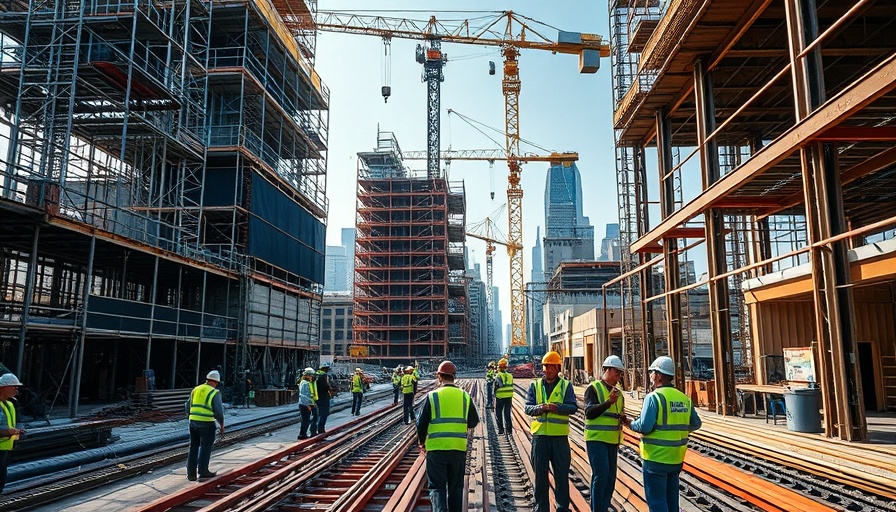
Construction Dilemmas: Understanding Project Delays
In recent months, homeowners, contractors, and those invested in residential renovations are faced with the pressing issue of delays in private construction projects. According to the latest Project Stress data from ConstructConnect, private sector projects faced a staggering 36.7% increase in on-hold activity compared to last year. While the Project Stress Index (PSI) shows a generally improved construction climate, this relief seems unevenly distributed, particularly disadvantaging private endeavors.
Analyzing the Numbers: What’s Behind the Delays?
Michael Guckes, the chief economist at ConstructConnect, explains that while overall abandonments in construction have decreased, private projects do not share this good fortune. As private activity continues to dwindle, the PSI for this sector remains alarmingly high—12.4% above levels recorded in 2021. In contrast, public projects experienced improvements, with on-hold activities dropping 25.3%. This stark contrast raises questions about the underlying factors affecting private construction.
Insights from Construction Experts
Reflecting on the situation, Guckes suggests that the anticipated benefits from eased regulations and tax reductions following the presidential transition have yet to manifest in private construction confidence. The uncertain economic landscape continues to breed hesitation among developers, as evidenced by a 6% drop in total construction starts in January, particularly impacting non-residential building.
Significance for Homeowners and Contractors
This situation presents real implications for homeowners and contractors alike. As individuals looking to invest in home improvement services, whether it’s a simple bathroom renovation or a major kitchen remodeling project, understanding these industry pressures is critical. With delays affecting construction timelines, homeowners should be proactive in researching and hiring reliable home contractors near me to keep their projects on track.
Effective Strategies to Mitigate Delays
For those involved in planning and executing construction projects, adopting effective management strategies can significantly minimize unmet expectations and financial overruns. Here are some practical tips to improve construction efficiency:
- Clear Communication: Establishing an open line of communication among all stakeholders, from contractors to homeowners, can keep everyone informed and aligned with project timelines.
- Realistic Scheduling: Develop realistic project timelines that consider potential disruptions, ensuring that all parties agree on expected deadlines and deliverables.
- Technology Utilization: Leveraging construction software solutions can streamline workflows and enhance transparency throughout the building process.
The Future of Construction: Optimism Ahead
Despite current challenges, there's reason to be optimistic about the future of private construction. Analysts like Guckes suggest that as regulations relax further, the private sector may regain its footing, leading to a resurgence in construction activity. For now, homeowners must be prepared for potential delays, but staying informed and connecting with the right home improvement services will help minimize stress and disappointment in the long run.
Conclusion: Taking Action in Uncertain Times
As the landscape of private construction continues to evolve, homeowners are encouraged to be proactive in their renovation and building plans. The current environment calls for diligence in selecting contractors and staying attuned to industry trends. Utilize local searches for kitchen remodeling near me or home repair services to find reliable professionals who can navigate these challenges effectively. Engage in your construction journey with confidence, knowing that informed decisions can lead to successful outcomes.
 Add Row
Add Row  Add
Add 




 Add Row
Add Row  Add
Add 

Write A Comment